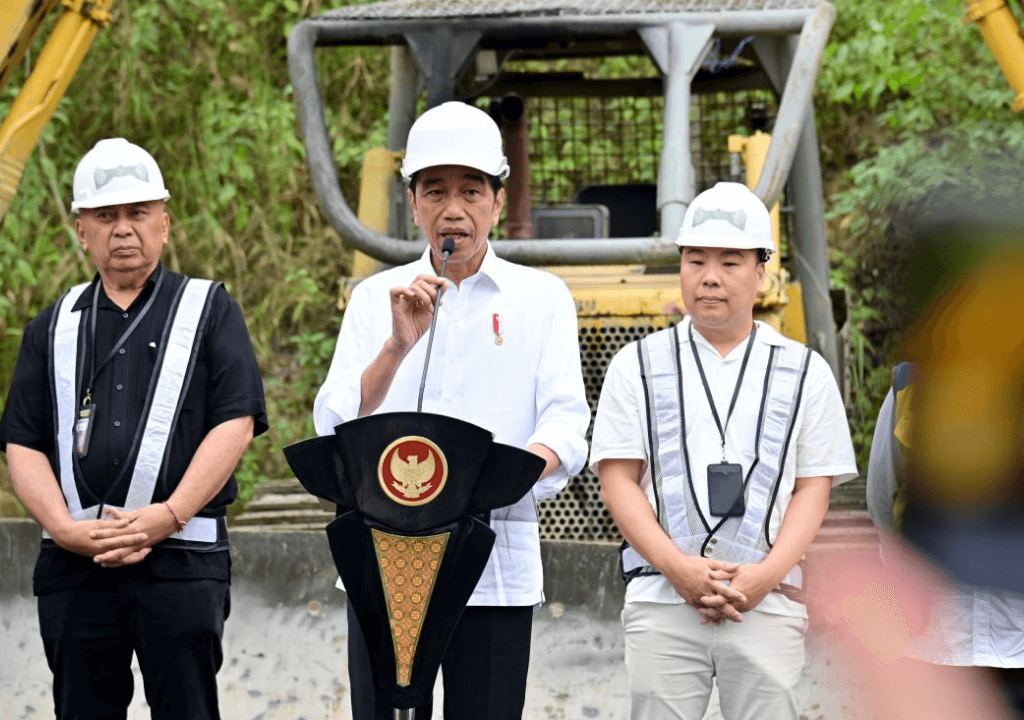The initial phase of Indonesia’s ambitious new capital project is slated for completion this year, aiming to relocate the capital from Jakarta to Nusantara before the country’s Independence Day on August 17. Indonesia’s seismic decision to move its capital to Nusantara Capital City (Ibu Kota Nusantara, or IKN) has garnered global attention, marking a significant transformation in the nation’s infrastructure and economic landscape. Located in East Kalimantan with an estimated budget of approximately $35 billion, IKN is expected to span 2,560 sq. km., featuring hilly landscapes, forests, and a natural bay. The Indonesian government plans to relocate up to 1.9 million people to IKN by 2045, with some civil servants making the move as early as 2024.
President Jokowi’s visionary initiative has faced its share of criticism since its announcement in 2019, with concerns ranging from insufficient public consultation and land disputes with indigenous communities to apprehensions about Chinese investment potentially turning Nusantara into a “New Beijing.” Observers caution against a more subtle concern—the undemocratic nature that the new capital, situated hundreds of miles away from Jakarta and intended to operate without elected local leaders, may bring to the forefront in the world’s third-largest democracy.
With President Jokowi concluding his term in February, the question arises: will the transition to a new president be a seamless process, considering the departure of this populist leader?
President Joko Widodo’s proposed new capital has become a pivotal policy consideration leading up to the 2024 elections in Indonesia. The Ibu Kota Negara Nusantara project (IKN), as officially named, seeks to establish a more centrally located hub for Indonesia, driving the nation’s economic transformation. President Jokowi has clarified that the goal is not to concentrate solely on Java but to prioritize Indonesia as a whole.
The future of the project commands significant attention in the upcoming election, with Defense Minister Prabowo Subianto, the current leading candidate, and his vice-presidential running mate, Gibran Rakabuming Raka, underscoring their commitment to contributing to the development of the new capital city in their official vision and mission statement.
Erwin Aksa, a representative of the Prabowo-Gibran ticket, envisions IKN hosting 1.9 million people by 2045, serving as the “soul” or “symbol” of a new Indonesia—a green, modern city and the focal point of a “new civilization.” Aksa highlights the integration of AI technology into IKN’s development. Ahmad Muzani, the secretary-general of Prabowo’s party Gerindra, reaffirms Prabowo’s unwavering commitment to advancing IKN’s development. Irwan Fecho, the official spokesperson for Prabowo’s Indonesia Maju coalition, anticipates practical aspects of IKN, including the completion of administrative offices like the presidential office, possibly as early as next year, under a Prabowo administration.
Similarly, the former Central Java Governor Ganjar Pranowo, along with his vice-presidential running mate Mahfud MD, is wholeheartedly dedicated to expediting the IKN project—a stance aligned with Ganjar’s candidacy for the ruling Indonesian Democratic Party of Struggle. Their official manifesto confirms their commitment to progressively develop IKN, envisioning it not only as a symbol of Indonesia’s future but also as a fresh starting point for equitable and balanced development.
Tama S. Langkun, spokesperson for the Ganjar-Mahfud campaign, emphasizes the duo’s unwavering commitment to advancing the IKN plan, citing its constitutional foundation and support from eight political factions. He underscores Ganjar’s mission to double the state budget for increased infrastructure development funds and stresses the pivotal role of foreign investment in achieving these objectives. While the likelihood of this pair abandoning the IKN project is minimal, it remains not entirely impossible, as Mahfud remains open to discussions.
Differing from his two rivals, the third presidential candidate, former Jakarta Governor Anies Baswedan, holds a distinct perspective on the IKN project. In a speech, Anies emphasized the significance of inclusive growth and balanced development for Indonesia, advocating for a decentralized approach that disperses development across multiple regions rather than concentrating it in one location.
Thomas Lembong, spokesperson for Anies and his vice-presidential partner Muhaimin Iskandar, reiterated their unique stance on IKN in a recent statement. Lembong stressed that for equitable development, the focus should extend beyond Kalimantan to encompass the entirety of Indonesia. The Anies-Muhaimin team aims to foster development in at least 14 major cities nationwide. While Lembong did not outright reject the continuation of IKN, he stated that any decision would depend on data, facts, and research, shaped through collaboration and discussions with technocrats.
Sulfikar Amir, serving as the campaign spokesperson, highlighted the high-risk nature of the IKN project, citing elements of uncertainty, vulnerability, and potential errors. He expressed concerns about the project’s substantial cost, cautioning that the initial 466 trillion rupiah price tag could potentially double or triple by the project’s completion. Amir emphasized the need for technocratic assessments to determine the viability of continuing IKN, stating that it doesn’t necessarily have to be completed entirely or abruptly abandoned.
Under a potential Anies presidency, the likelihood of abandoning the IKN project appears substantial, whether the departure occurs abruptly or gradually. In discussions with young voters, Anies consistently emphasizes alternative priorities, and notably, the Anies-Muhaimin manifesto lacks any emphasis on the continuation of IKN. There is a significant probability that IKN will be abandoned, and under Anies-Muhaimin’s leadership, the government is poised to pursue the implementation of their own 14-city development plan.
A big infrastructure project can turn out either as a waste of money or a major economic boost. Getting enough investment for the “new Indonesia” is tough, so the IKN project depends a lot on government support. That’s why every upcoming election and change in government are super important for the project to succeed. When it comes to large-scale projects like Nusantra, they have a big impact on politicians and the country’s money situation. In a country like Indonesia, where big business plays a significant role, the chances of the Nusantara project moving forward instead of being abandoned are quite high.








